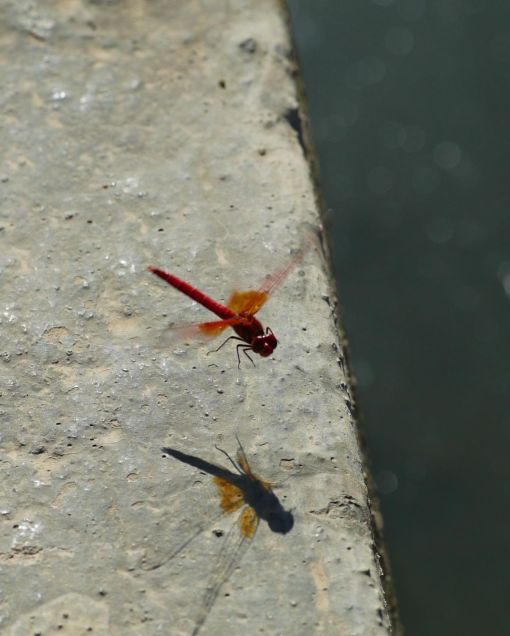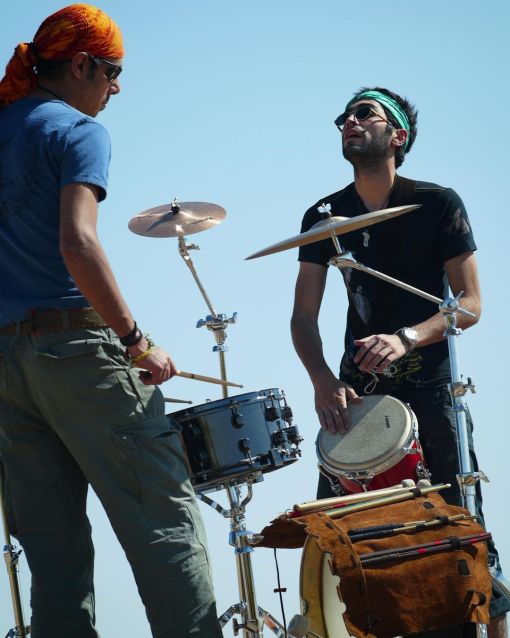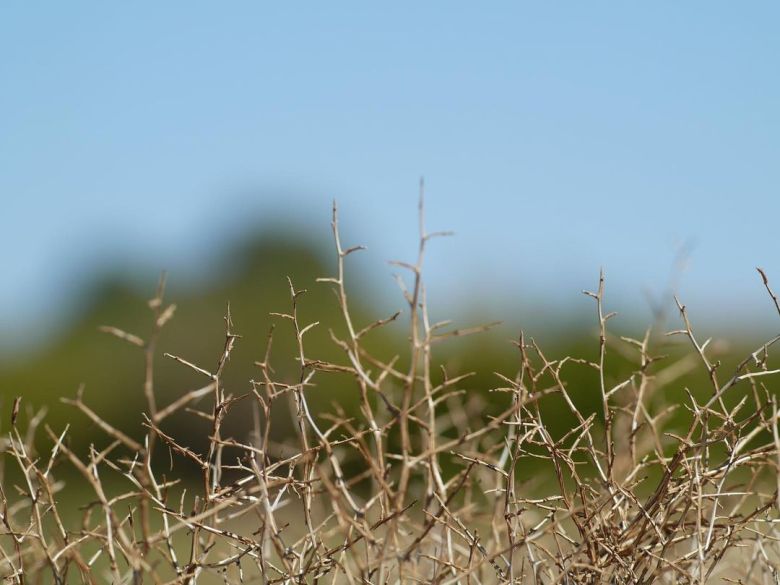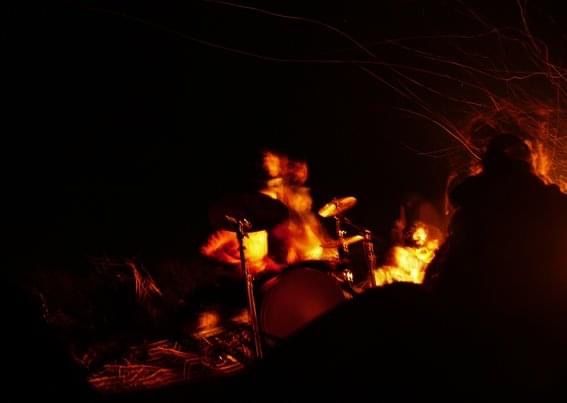Not much music theory is needed here. You either connect, or not, with the warm sand, the humid wind crossing the ocean, the density of the sun, the dialogue of the herons, the smell of smoke, the silence of the desert, the vastness of the horizon . . . All of it fills you up. Having reached the empty pond, we were both about to burst. Obviously, no rain had been here, so we poured our sounds into it. No discussion, no decisions; it just happened as if it was inevitable. Me with my scratched voice and she with her broken guitar, we synchronized.
Improvisation is a form of surrender. You give in to the flow and let it constantly surprise you. Control is the last active element in this equation. Correct or incorrect, beautiful or ugly, pleasant or annoying . . . To each their own, or not. It doesn’t matter. This kind of production does not consider the audience’s biases; it simply allows itself to become. It is as inevitable as excretion after a long day of nutrition. Like a process of digestion, the stream of unconsciousness in connection with all existing essence passes through the filter of your being and, as a result, echoes out into space. We gave all the harmony the land has given us into the echo of the Borka.
Borka, in the dialect of southern Iran, is a type of dome-shaped cistern that fills up with rainwater, traditionally used by locals as a source of drinking water.




Raha Faridi, “Sonic Spaces: Borka,” in mohit.art NOTES #2 (June 2023); published on www.mohit.art, May 26, 2023.